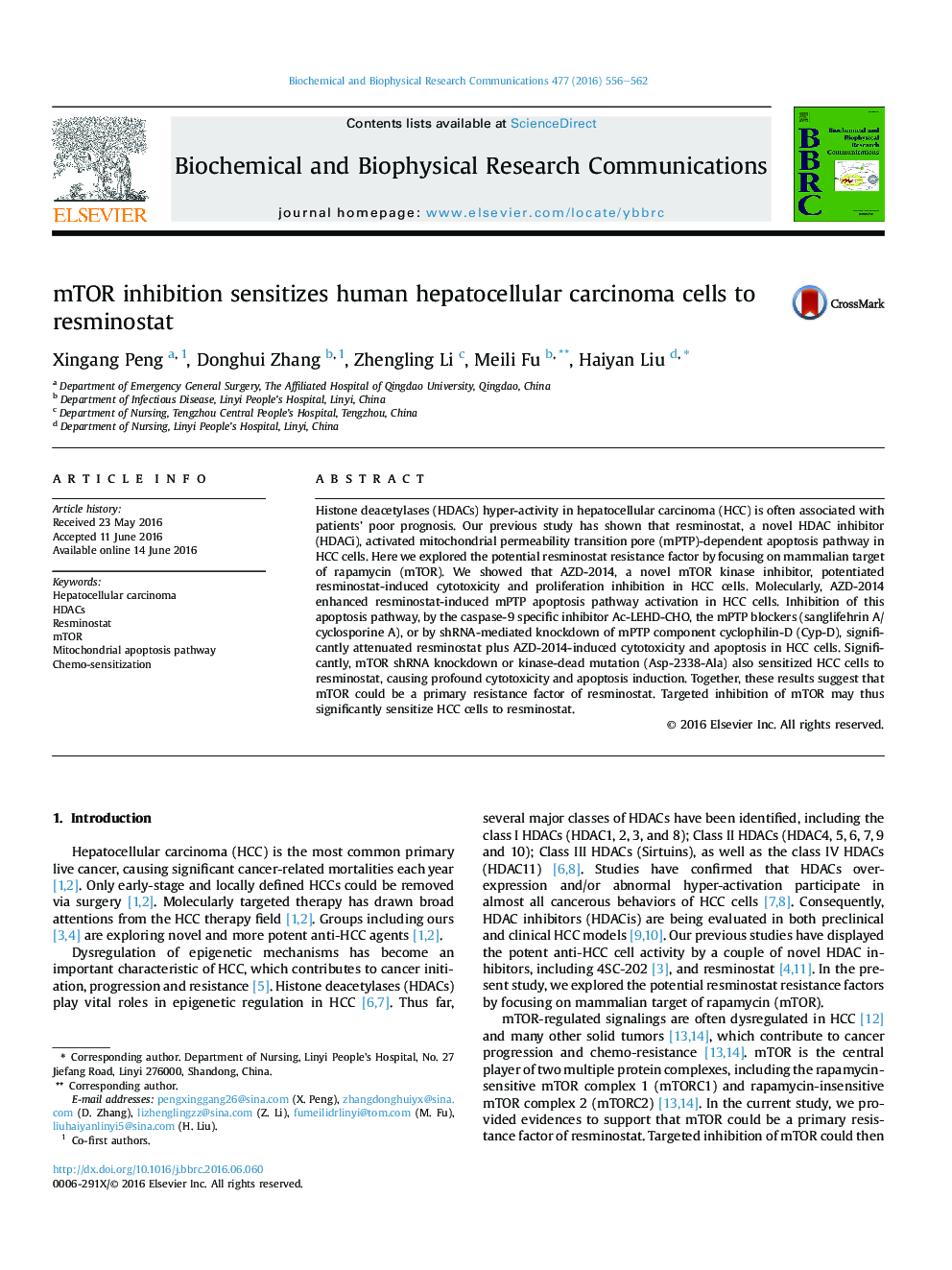| Article ID | Journal | Published Year | Pages | File Type |
|---|---|---|---|---|
| 10747921 | Biochemical and Biophysical Research Communications | 2016 | 7 Pages |
Abstract
Histone deacetylases (HDACs) hyper-activity in hepatocellular carcinoma (HCC) is often associated with patients' poor prognosis. Our previous study has shown that resminostat, a novel HDAC inhibitor (HDACi), activated mitochondrial permeability transition pore (mPTP)-dependent apoptosis pathway in HCC cells. Here we explored the potential resminostat resistance factor by focusing on mammalian target of rapamycin (mTOR). We showed that AZD-2014, a novel mTOR kinase inhibitor, potentiated resminostat-induced cytotoxicity and proliferation inhibition in HCC cells. Molecularly, AZD-2014 enhanced resminostat-induced mPTP apoptosis pathway activation in HCC cells. Inhibition of this apoptosis pathway, by the caspase-9 specific inhibitor Ac-LEHD-CHO, the mPTP blockers (sanglifehrin A/cyclosporine A), or by shRNA-mediated knockdown of mPTP component cyclophilin-D (Cyp-D), significantly attenuated resminostat plus AZD-2014-induced cytotoxicity and apoptosis in HCC cells. Significantly, mTOR shRNA knockdown or kinase-dead mutation (Asp-2338-Ala) also sensitized HCC cells to resminostat, causing profound cytotoxicity and apoptosis induction. Together, these results suggest that mTOR could be a primary resistance factor of resminostat. Targeted inhibition of mTOR may thus significantly sensitize HCC cells to resminostat.
Related Topics
Life Sciences
Biochemistry, Genetics and Molecular Biology
Biochemistry
Authors
Xingang Peng, Donghui Zhang, Zhengling Li, Meili Fu, Haiyan Liu,
